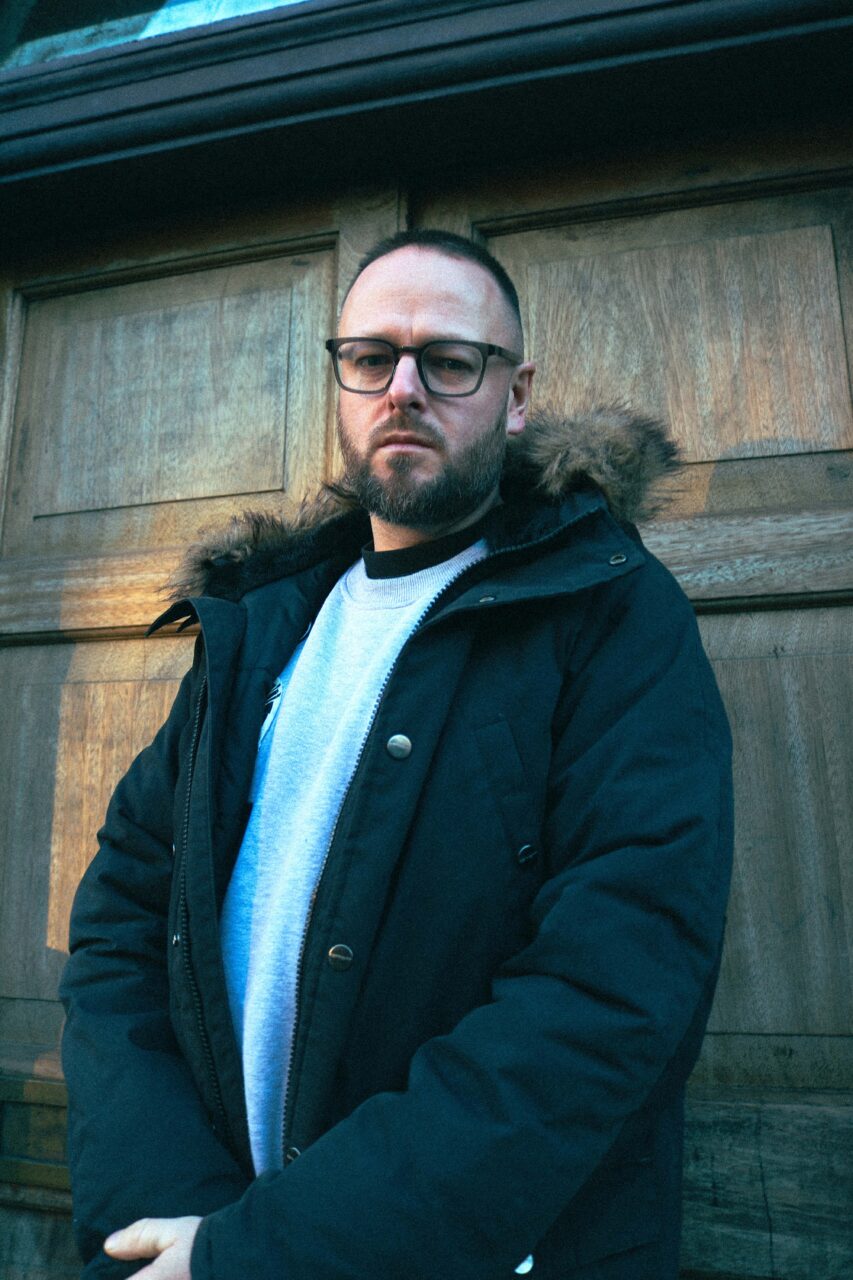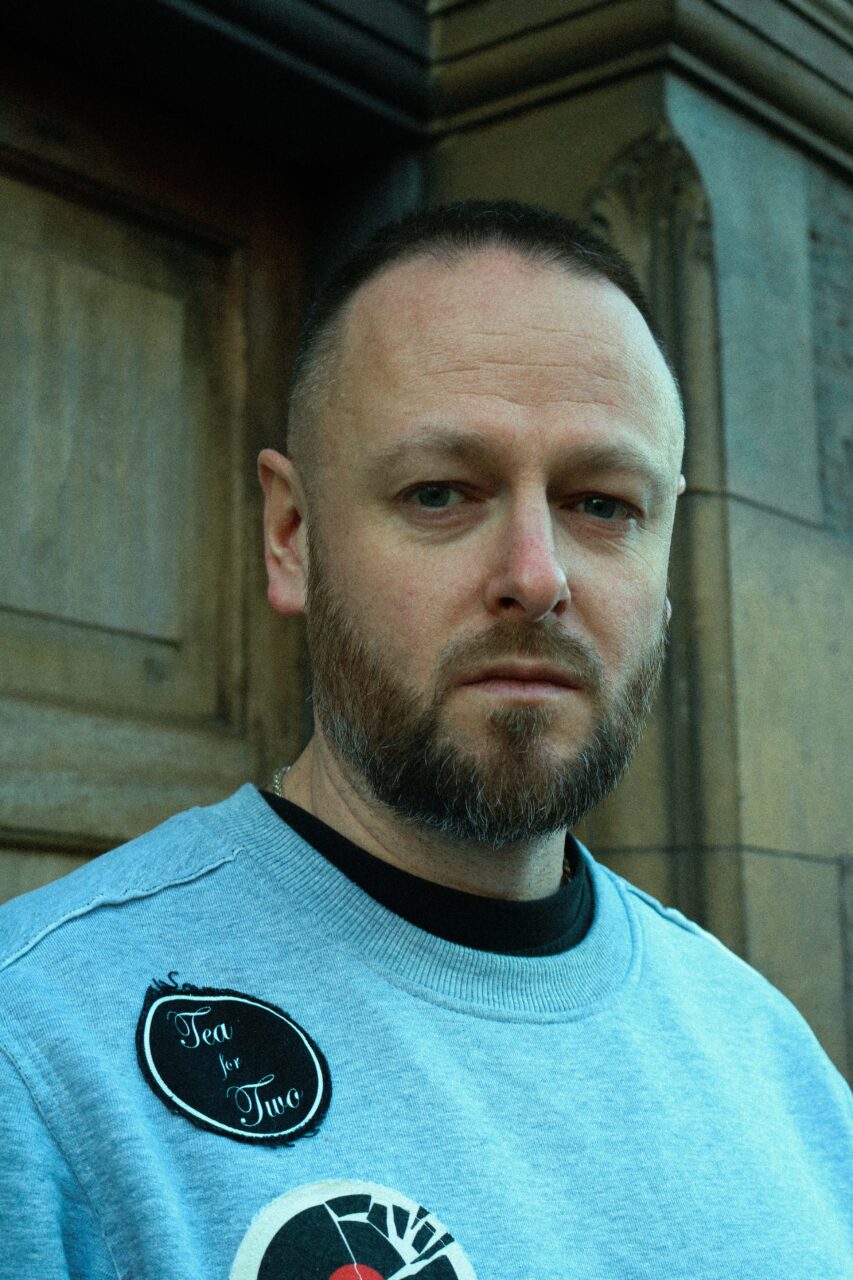Artist Interview: Sam Binga
 By Resonate | May 2, 2023
By Resonate | May 2, 2023
Words by Jacob Dowdle
Photos by RuuMedia
“My take on dance music has always been that I like dance music. It’s not that I like drum and bass, or I like techno or whatever. It’s an exciting world to be in. I want to have fun exploring as much of it as I feel able to do decently, you know?” says Sam, discussing his philosophy behind all things creative.
We sit talking on an unusually sunny February afternoon inside the disused bank vault in the heart of Bristol that houses Sam’s studio. Flashing lights from outboard gear and the smell of high-end reed diffusers imbue the senses, allowing a glimpse into the atmosphere present during the creation of dancefloor staples like Sip and Shake from the latest Amy Kisnorbo EP Verb Works. To put it lightly, Sam Binga’s label Pineapple has been releasing music at the forefront of all things club since its inception in 2019 – in keeping with his personal ethos of genre exploration.
“It started to become more appealing to have a place where I could just explore my stuff without worrying too much about genre constraints”
“I started Pineapple with a friend of mine, a guy called Graham, who’s more on the industry side of things – he’s always been a really useful person to kind of bounce ideas off – he’d been saying for years, I really should be doing your label, it makes complete sense – then as time went on, things shifted within that little area of dance music. It started to become more appealing to have a place where I could just explore my stuff without worrying too much about genre constraints – as a DJ, I’ve always been excited by playing things like house, techno and UK funky, so it made sense to create a place where I could explore that side of myself as a producer as well”. The organic and ever-changing nature of the label has certainly been reflected in the genres and style of releases by Binga himself in recent times.
His latest full-length album Omura – a collaboration with Fracture – was a departure from the usual all-out-energy his tracklists unashamedly deliver, opting in the most part for a more subdued, world-building sound inspired by the works of The KLF and Drexciya – “Everything he touched just turned to gold. He’s a talented guy,” Sam says in reference to musician and joint mastermind of the KLF Foundation, Bill Drummond. The inspiration can be seen in the cryptic visuals and actions performed by the pair leading up to the release of the album; conducting interviews in large black hooded cloaks, posting “found footage” of mysterious beings in forests and the album cover itself, which wouldn’t look out of place in a Lovecraftian novel. The alien nature of the sound design solidifies the fiction whilst providing driving rhythms that force daydreams of sweaty clubs and banging sound systems.

The question of dance music’s validity in terms of study and cultural significance has often been questioned by academics and politicians alike. In response to a question – “What are some of your controversial opinions about music?” – posed by Elijah – the owner of the now defunct Butterz Records and legend of the UK Grime scene – on his growing Yellow Square format, Sam had this to say “I felt for a long time that straight up dance floor weapons often get taken a bit less seriously than introspective headphone music. A natural part of reviewing music is you’re generally not reviewing it in a club or dance space. So something that sounds really beautiful and introspective will be great on your headphones on a rainy Tuesday afternoon… Whereas an absolute banging weapon, which might be something exciting and fun in the club, might be a bit too much for you in those situations – but I think that it’s super important that there’s a degree of recognition”.
He continues, “A big part of the reason why I’m able to justify spending so much time and money and effort and stress like doing this for a living is that I think it’s valuable to give people a release and let them go crazy and get excited and lose themselves. I think that can be achieved for some people by listening to deep meditative music, but it’s equally valid that it can be achieved by rowdy fun time stuff”.
Sam’s attitude towards music creation and appreciation comes across clearly through the nature of his releases and how he runs Pineapple. We started talking about his A&R process for the label, “It’s always been my mates, basically, or people that I respect, and I have some kind of link to – the only person that I didn’t know super well before releasing was the Cesco EP, which did super well. He approached me saying I’ve got a couple of tunes that I think might work with the label’s vibe, and the first thing he sent me was Move Too Slow, which was just a no-brainer!”. This organic approach to growth has resulted in an artist roster and group of releases that feels like a group of mates in the studio making whatever they find exciting in a true DIY fashion.

“We started with a different approach to releasing,” Sam says in reference to their strategic algorithm manipulation. “We quickly noticed that Bandcamp prefers EP’s and Spotify prefers singles, so rather than being beholden to the vinyl approach of, you know, you’d write a record and then you wait six months to fit to be able to be released. Yeah. And then you then it’s another X amount of months before you do another one kind of thing. It was like, no, let’s just try and adapt”. The landscape of releasing music has changed dramatically over the past few years, with waiting times for vinyl soaring upwards of eight months and prices following suit. With today’s music consumers having a cornucopia of platforms and formats at their fingertips, it’s no surprise that more and more labels have shifted focus away from tradition to embrace the often low-income modern alternatives like streaming. “As much as I’d love it to be the 90s again where you could release two records a year and, you know, buy a house off it… Those days are gone. So instead, it’s like, ‘Well, okay, what happens if we try and do it in a way that keeps things moving’”. The result is a label that takes a modern approach to releasing music while keeping up organic growth and a real sense of community.
With a plethora of releases lined up as well as a smattering of festival takeovers and shows coming up this summer – notably a main stage Pineapple Records takeover at Coalesce festival alongside label regulars Amy Kisnorbo and Addison Groove – we’re very excited to see what rowdy and downright fun things the ever popular Sam Binga and Pineapple get up to in the future.
To find more Artist Interviews, click here.